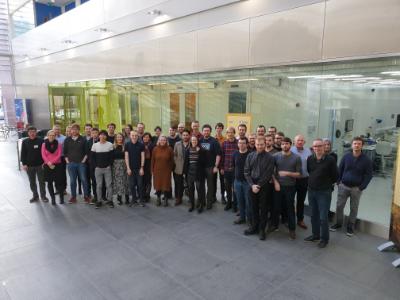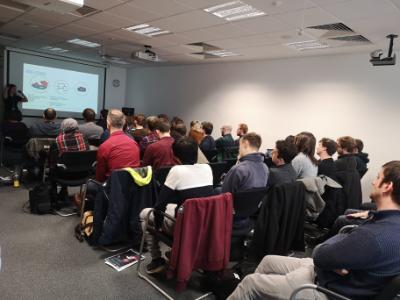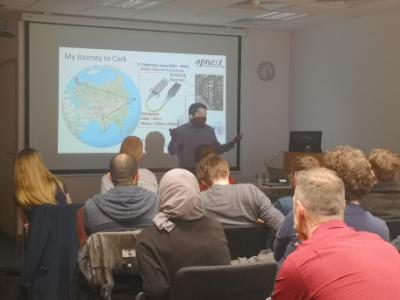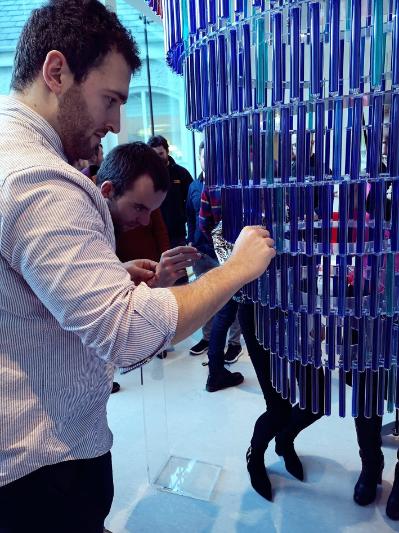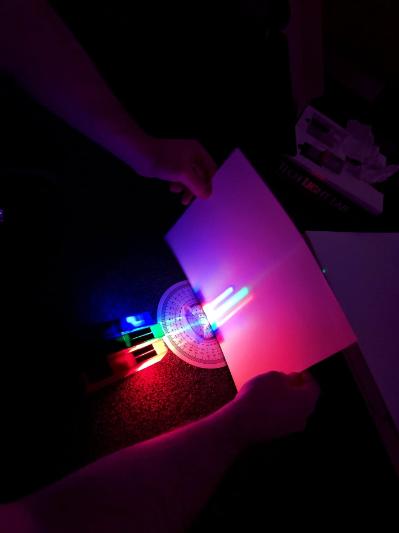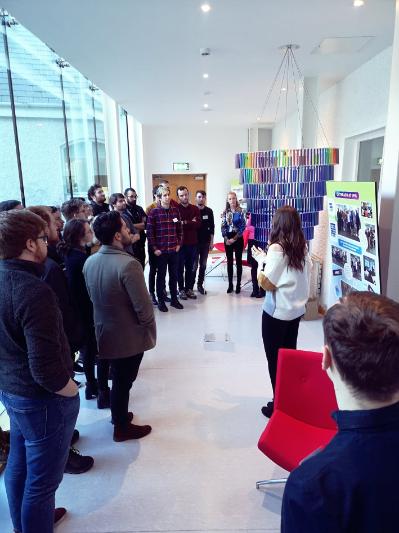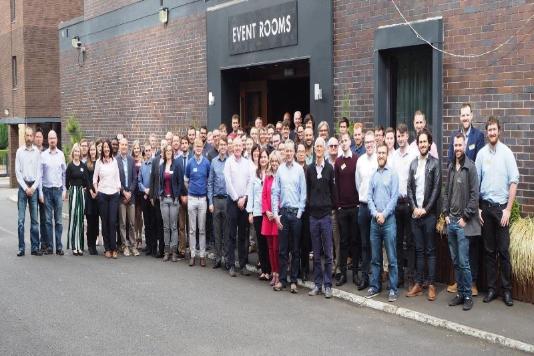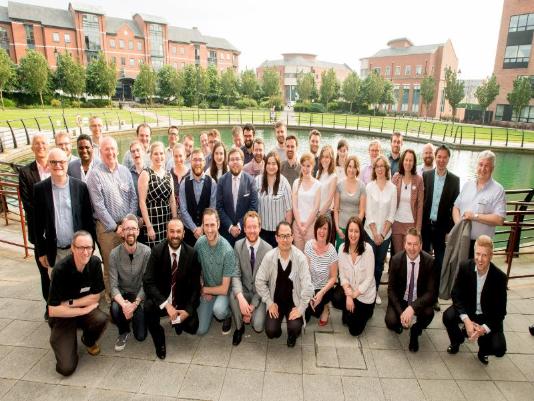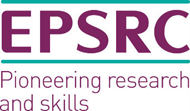Our Annual Events
Each summer, our first year PIADS CDT students undertake the momentous task of coordinating our annual student conference, which brings together our 50+ students, alumni, academic colleagues, industry partners and broad PGR communities, to discuss the remarkable research being undertaken by the students in the PIADS CDT programme.
2022’s Conclave was a blast – beginning with a real blast of bagpipes at 8:30 am heralding the arrival of the first guests into the National Piping Centre. This famous Glaswegian venue was chosen to celebrate to Scotland’s impressive heritage, after the Conclave was held in Belfast for the past two years. This year was centred around a theme of Sustainability in Photonics, and included speakers and presenters from across the UK, Ireland and Switzerland.
The Conclave’s theme was chosen for several reasons: firstly, most of PIADS’s research is related to photonics. Secondly, this year Glasgow was proud to host many world leaders, who gathered to discuss important issues on climate change and how to achieve the Glasgow Climate Pact. As photonics is often more sustainable than its non-light-based counterparts, all our students are contributing to global sustainability research.
Approximately 30 students between their 2nd and 4th year of PhD presented their work, alongside two keynote speakers chosen for their vast knowledge and experience in both academia and industry: Dr John Lincoln and Prof Andy Monkman.
Starting his talk with a series of interactive questions such as “how much could photonics contribute to global sustainability”, Dr Lincoln proceeded to demonstrate that virtually everything in the modern world relies on photonics, directly or indirectly! Not least simply because the Internet heavily relies on fibre optics! Dr Lincoln also spoke about the shifting focus in the UK’s economic targets, and how the view of sustainability has changed over the last decade. Presenting some real-world examples of where photonics can enable improved sustainability, he spoke about wind farms, cloud servers and even tractors. Day 1 was finally concluded with a feisty ceilidh to continue engaging with the local Scottish culture, where students and professors alike danced their feet off to the sounds of live Gaelic folk music.
Professor Andy Monkman of Durham University rounded off day 2 with a fascinating talk exploring how the near-perfect OLED could be made even better. His talk explained how traditional phosphorescent OLEDs suffer from fundamental quantum yield limitations, and how rectifying those with rare-earth metals doesn’t align with global sustainability. Then, Prof Monkman presented a promising alternative, thermally activated delayed fluorescence. This mechanism is capable of producing deep blue coloured light, and has been rising in popularity over the last 2 decades: and just maybe it will become the new commercial standard for OLED screens.
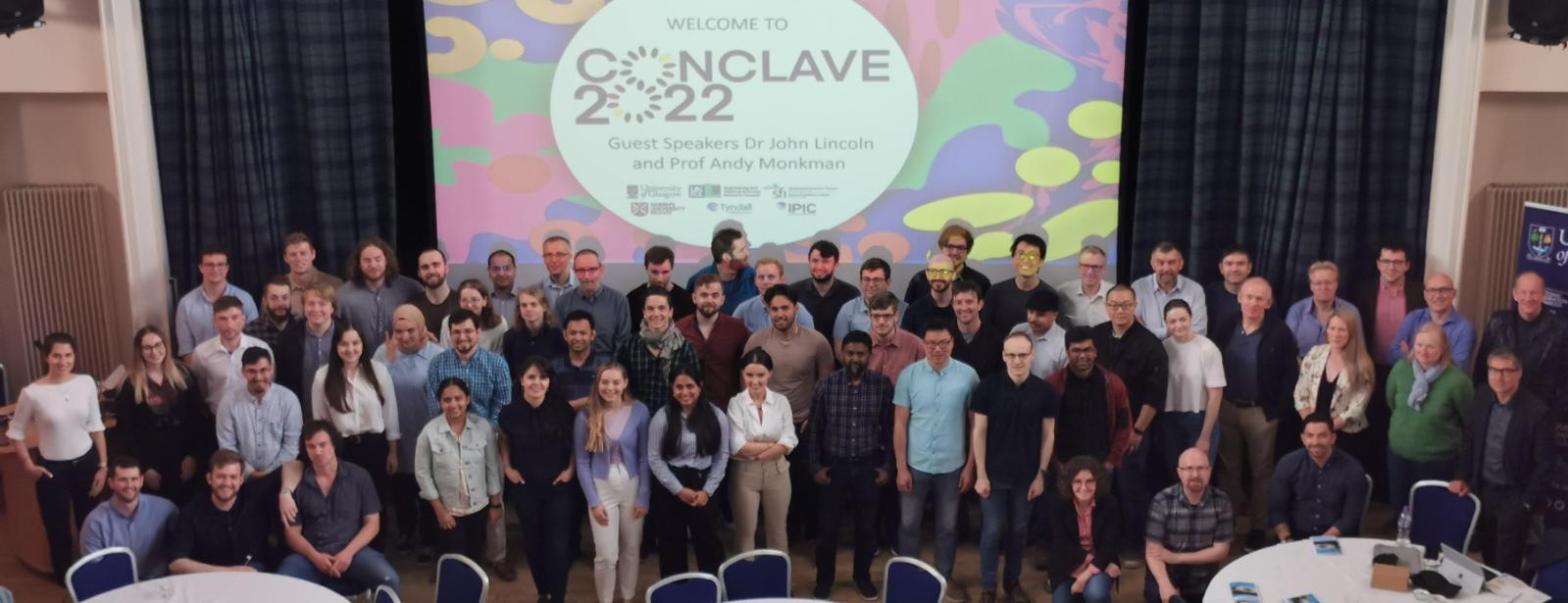
Conclave 2020
Our student conclave, held every summer, is a vibrant celebration bringing together our entire student base, directors, industrial partners and support network (usually!) under one roof. This event is an opportunity for our student base to present their research highlights over the past 12 months, for our academic colleagues to convey their latest research achievements, and for our industrial stakeholders to discuss the landscape, business challenges, and what they might be looking for in new talent over the next few years.
However, unsurprisingly, 2020's Summer Conclave went virtual!
Host: Dr Fatima Gunning, Tyndall National Institute
Winners were:
In January 2020, we kicked off our first ever annual Winter School, which was hosted by PIADS partner IPIC, and held at Tyndall National Institute in Cork.
The motivation of delivering this annual event was to provide opportunity to both identify and develop the key skills which support our students to be well rounded researchers. We are acutely aware that not only should our graduates be academically brilliant, but that person skills such as effective communication with peers, self-management, resilience, being quick to adapt, and being able to learn from mistakes, are all key skills that make a brilliant scientist.
The Winter School provided a rich training programme which spanned commercialisation, entrepreneurship, research outputs, and careers discussions, whilst also tapping in to the benefits gained from public engagement.
The day was opened by Prof Paul Townsend, Director of IPIC, and the first session on 'An Introduction to the Personal Development Plan (PDP)' was delivered by Dr Patrick Morrissey, Head of Photonics Operations, IPIC.
In his session, Patrick communicated the importance of the PDP and encouraged students to engage with both personal feedback and reflective practice, in order to identify development needs and effectively evidence their personal development in order to facilitate transition in to employment.
Dr Morrissey reinforced that the PDP aims to encourage all students to become more proactive in their development throughout their studies, and to appreciate that they offer more to a potential employer than a knowledge base in photonics.
The residential continued with vibrant development sessions on subjects such as: "How to Write a Paper for Nature" delivered by Dr Lina Persechini, Team Manager and Associate Editor at Nature Communications, as well as a session on commercialisation, delivered by Dr David McGovern, IPIC Senior Business Development Manager.
There were also opportunities for hands on practice, during sessions from Dr Caitríona Tyndall who discussed mastering effective scientific public engagement. and in a parallel session, 'Getting the most out of Vlogging', delivered by Judie Russell, founder of The Vidacademy.
The Gaposchkin Chandelier, by artist Emer O Boyle, resides in Tyndall National Institute. It's purpose is to celebrate Ireland’s contribution to science, and highlight the vibrant careers and opportunities that STEM provides to young people.
In 1925, a female scientist called Cecilia Payne Gaposchkin deciphered the composition of stars by observing their emitted absorption lines. Based on the spectrum of light from our nearest star, the Sun, The Gaposchkin Chandelier is made with 603 test tubes each containing a symbolic absorption line.
Each blue test tube represents a male working in STEM, and the rainbow ones, female.
During the Winter School, each of the PIADS CDT students signed the pledge, saying "I can see a gender equal society" and placed each signature into one of the test tubes.
As the female representation in STEM increases, another rainbow test tube will be added, to reflect progress towards having 50% female representation.
CDT PIADS held its fourth annual Conclave on 17-18th of June at the Crowne Plaza Hotel, Belfast. This conference attracted over 100 attendees – the biggest gathering for CDT PIADS’ extended network to date.
The meeting was vibrant, with representation from existing industry partners and networks, key CDT academics and the CDT cohort as a whole. Prof David Cumming, Head of the James Watt School of Engineering was also present, helping to mark a pivotal turning point in Conclave 2019, as the CDT begins its second lifetime. CDT PIADS hosted established partners Seagate Technology, CST Global, Causeway Sensors, Eblana Photonics, Technology Scotland, Axenic, Yelo, Andor and IPIC.
Prof Rachel Oliver, University of Cambridge, delivered an exceptional keynote address on the first day, covering her research interests including GaN-based single-photon sources. Prof Paul Townsend, Director of IPIC gave an overview of activity at IPIC on the second day, highlighting future collaborations as a new CDT partner. Additionally, CEO of Technology Scotland, Stephen Taylor chaired an engaging panel discussion session on "Photonics as a Key Enabling Technology", joined by Prof Oliver, CST Global's Adam McKenzie and IPIC's Dr William Whelan-Curtin.
The conference attracted sponsorship from the Seagate Technology who are celebrating 25 years in Springtown, Northern Ireland who were able to present student poster and talk prizes in the form of the latest1TB Seagate external disc drives on the market.
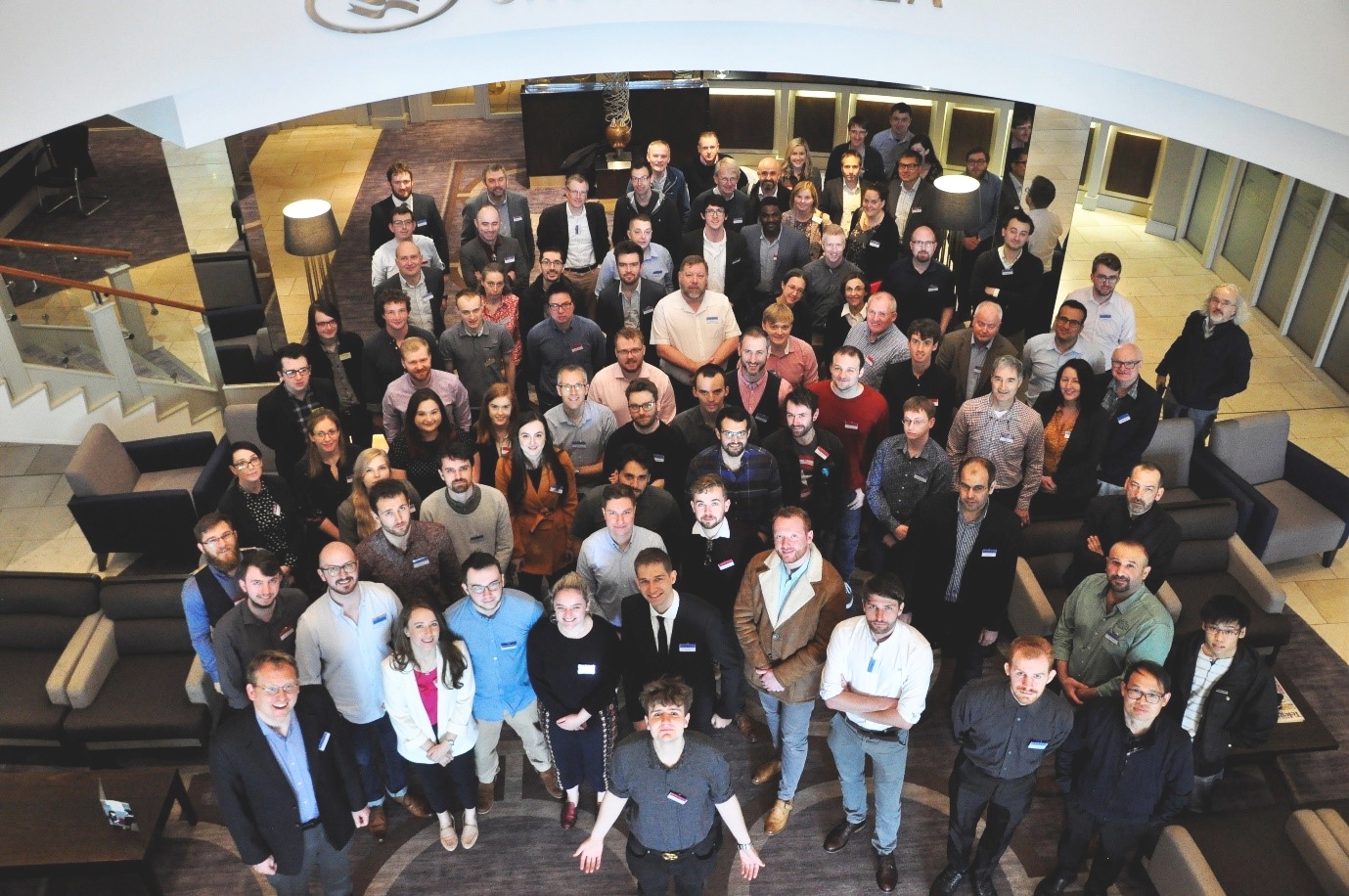
CDT PIADS ‘Conclave 2019’: A gathering of new and current CDT students, academics, industrial representatives and networks


